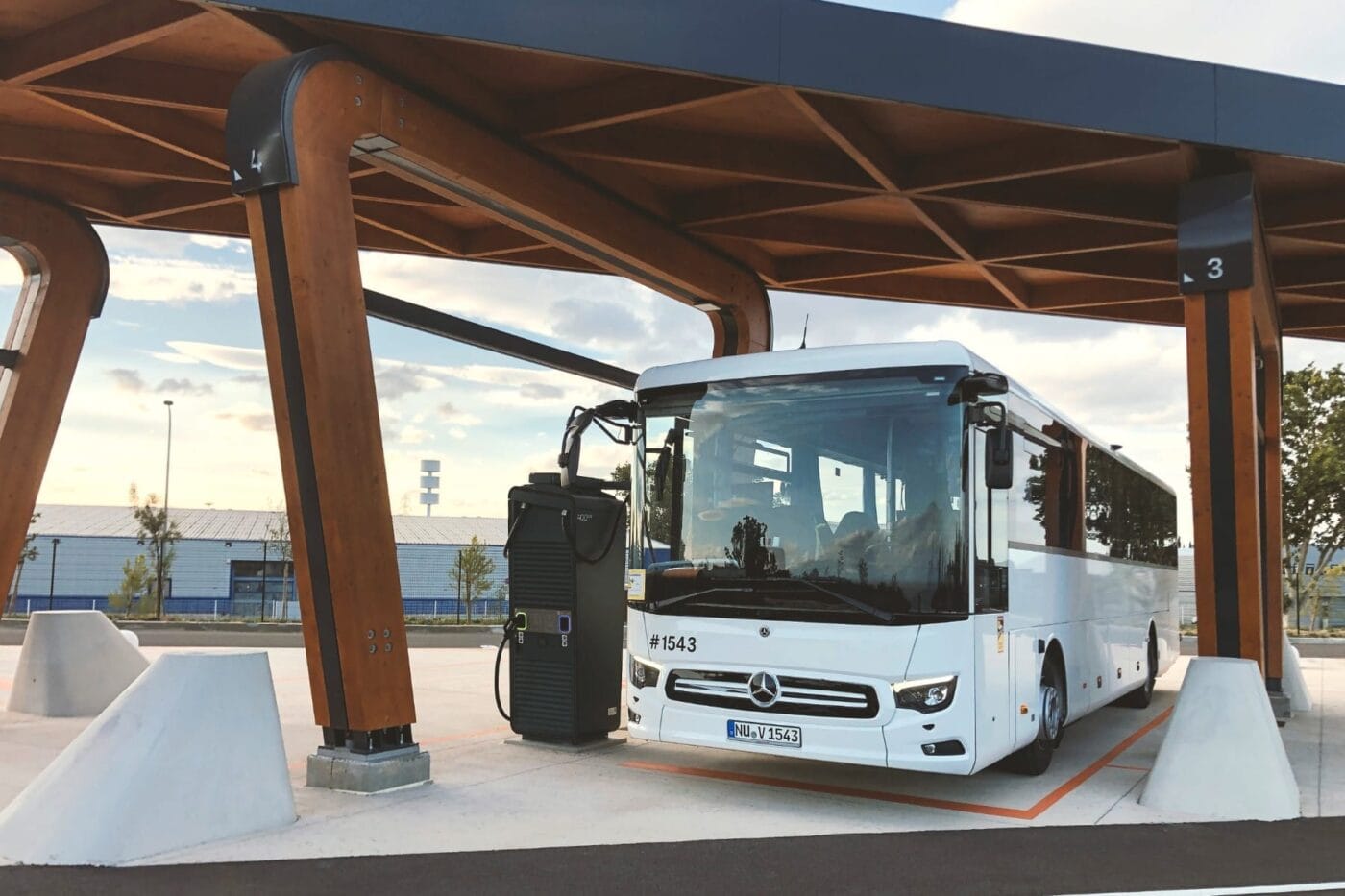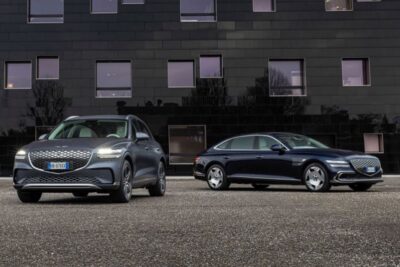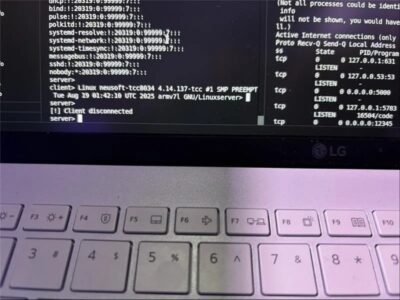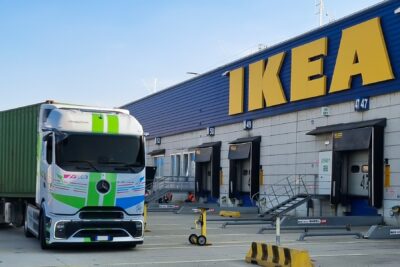Daimler Buses builds public bus chargers
Electrification is advancing rapidly in the electric truck sector. Even heavy electric trucks can now be used without any problems in distribution transport around their own depot (with a fixed charging station). In long-distance transport, which is more difficult to plan, the use of electric trucks is already possible in some cases, but with a little extra effort. As the charging infrastructure suitable for heavy commercial vehicles along motorways is constantly growing, this scenario is becoming increasingly easy to implement. The situation is similar for buses: city buses with fixed, plannable routes and their own charging point in the bus depot can already be easily electrified today. In the coach segment, however, the situation is (still) different.
Ahead of the premiere of the Mercedes-Benz eIntouro electric intercity bus at this year’s Busworld, Daimler Buses is therefore making an important announcement in advance: starting next year, the manufacturer will install and operate public charging stations for electric buses at high-traffic tourist locations, meaning bus parking areas at amusement parks or in popular tourist cities, for example. This will enable electric buses to be used for remote destinations in the future. Currently, this is only possible in very isolated cases, according to Daimler Buses.
“The future of buses is electric. However, setting up the necessary public charging infrastructure is taking too long. We want to provide important impetus with our charging stations,” said Till Oberwörder, CEO of Daimler Buses. “Our new battery-electric intercity bus, the eIntouro, already connects urban and rural areas. It is also suitable for shorter journeys.”
The manufacturer unveiled the eIntouro last autumn as a near-series vehicle. This year, the latest prototypes have completed final test and tuning drives, such as winter testing in the Arctic Circle and high-temperature testing in Andalusia. On 3 October, one day before the start of Busworld in Brussels, the veil will be lifted from the final series model.
Daimler Buses utilises existing expertise
Daimler Truck AG already has extensive experience in building charging infrastructure: The company is involved in the Milence joint venture, which is installing fast chargers suitable for commercial vehicles along motorways and freight corridors. Some Milence charging parks near motorways may also be suitable for buses, but a charging break in the port of Antwerp-Bruges does not exactly support the use of electric buses for tourism. Through its charging subsidiary Daimler Buses Solutions, founded in 2023, the company has so far mainly advised its city bus customers or planned, built and handed over the necessary turnkey charging infrastructure.
Now, Daimler Buses Solutions GmbH is set to electrify not only bus depots, but also publicly accessible car parks. The subsidiary is financing the charging stations and their operation itself, working “closely with experienced companies” on the construction. Refinancing will be achieved through the sale of electricity. “After commissioning, Daimler Buses Solutions will take over maintenance and technical operation with its own service team. Property owners thus benefit from a charging infrastructure from a single source – without any investment or major effort on their part,” Daimler Buses wrote.
The first step is a pilot project initiated by the state energy and climate protection agency NRW.Energy4Climate in collaboration with the city of Cologne: next year, four public fast-charging points for electric buses are to be installed near the city centre. Specifically, this involves the ‘Buspark Köln’ bus park on Kuhweg, west of the Rhine riverbank. This is located near the port of Niehl, north of the city centre, but is well connected to public transport via the Slabystraße tram stop.
As a result, the location is already used as a central parking area for intercity and coaches that bring tourists to Cologne. From 2026, this will also be possible with electric buses, regardless of brand. The charging points will be accessible to the public around the clock, seven days a week, as Daimler Buses emphasises. They are designed for a nominal output of 400 kW each. As intercity and coaches only park there for a few hours, higher charging capacities are required here than, for example, in city bus depots, where charging can be spread over the entire nighttime break, and 50 to 70 kW per charging point is sometimes sufficient.
The aim of the City of Cologne is to use the pilot project to find out how well the new public charging infrastructure for electric coaches and coaches is accepted. “Cologne is a popular destination for tour groups from Germany and abroad. We want to help ensure that they can also travel here easily in emission-free buses in the future,” said Ascan Egerer, Deputy Mayor for Mobility in Cologne. “The fast-charging stations planned as part of the pilot project at the bus park on Kuhweg are therefore an important step towards sustainable tourism in Cologne.”
Focus on BEV coaches, then FCEVs
For Daimler Buses, however, the project in Cologne is only the beginning, even if concrete targets, such as a planned number of charging points by 2030, are not specified. Daimler Buses CEO Till Oberwörder emphasises that vehicles such as the upcoming eIntouro are already suitable for shorter journeys. “These are currently the most sensible application scenarios for electric buses outside urban public transport. The vehicle will therefore already benefit from the expansion of the public charging infrastructure,” says Oberwörder. “For electric travel to distant and remote destinations, on the other hand, a comprehensive network is needed so that bus companies can use electric coaches economically and without compromising on comfort for their passengers.”
Daimler Buses plans to have battery-electric coaches in its portfolio “by the end of the decade,” with fuel cell coaches then going into series production in the next step. “The manufacturer is thus delivering the right product at the right time – when the infrastructure is ready,” the company writes. This strategy also applies to trucks: partly because the infrastructure conditions are not yet right, Daimler Truck has postponed its fuel cell trucks until the 2030s, despite having functional prototypes in customer use. Until then, the focus will be on batteries, with the existing infrastructure, which still has room for improvement.
Source: Info via email
This article was first published by Sebastian Schaal for electrive’s German edition





0 Comments